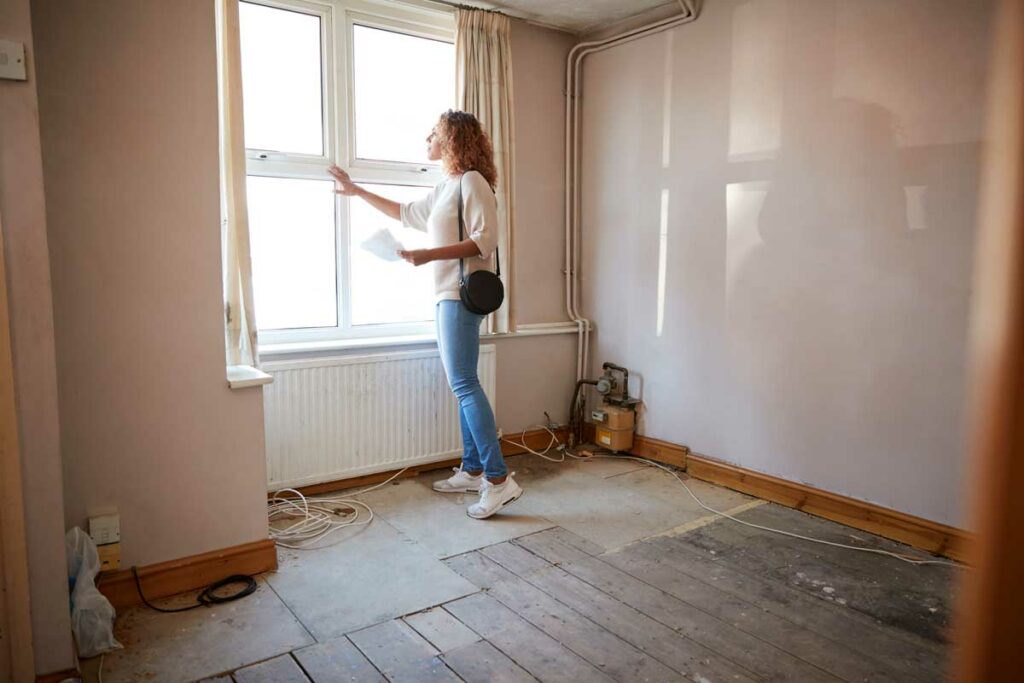Buying your dream home is a complicated process, so it’s no wonder why a lot of first-time buyers miss the important details. Read about these common mistakes now, so you don’t have to learn these lessons later down the road.

Mistake #1 Not knowing your price range
If you don’t nail down a reasonable price range, you may end up wasting time looking at homes that are WAY over your budget. So aiming small is the practical way to go, but who knows? If you don’t understand your budget, you may even low-ball the price and miss out on a home that you didn’t even know you could afford!
You want a home you love, along with a reasonable loan that doesn’t leave you stressing over the mortgage payments. To achieve that dream, you need to know your budget.
To avoid this mistake: Get pre-qualified by a mortgage lender to get an estimated price range.
Mistake #2 Not getting a second opinion
A lot of first-time buyers don’t know that interest rates & other fees can vary from lender to lender. If you rely on a single quote from only one lender, you might miss out on hefty savings.
You want to work with the mortgage professional who can get you the best value for your home loan, not just the best rate.
Loan officers and mortgage brokers should be upfront and honest about what they can offer you. In fact, a lot of mortgage professionals will encourage you to get a second opinion. (As a side note, if you happen to go to a mortgage banker, make sure to ask them about overlay fees.)
Overall, you want to work with the mortgage professional who can get you the best value for your home loan, as well as someone who is an open book when it comes to your different options.
To avoid this mistake: Always get a second opinion from a different mortgage professional. If you’re worried about your credit, keep in mind that home mortgage inquiries within a 45-day period typically only count as one credit check.
Mistake #3 Not properly checking your credit score for errors
Mortgage lenders look at your credit to help determine: whether you’ll be accepted for a loan, and what interest rate you’ll receive on that loan. If there’s an error on your credit report, you might be given an interest rate that’s much higher than you deserve. That’s why you have to make sure your credit history is accurate.
To avoid this mistake: Each year, register for a free credit report from one of the three main credit bureaus (Equifax, Experian, TransUnion). Keep an eye out for any errors on your report that you can dispute.
Mistake #4 Forgetting about the closing costs
Not only should you save up for a down payment, but you should also prepare for the costs of closing on your mortgage.
Generally, closing costs are around 2% to 5% of your loan amount. Keep in mind other closing costs as well: homeowners insurance, house repairs, and title checks. For these additional costs, you can shop around to compare the different rates.
To avoid this mistake: Measure your planned closing costs so you can set aside a budget. To cut down on expenses, consider asking the seller to pay for a portion of the closing costs.
Mistake #5 Choosing a home for today, not for tomorrow
It’s easy to think about what you want right now. But people change. Maybe you’ll switch careers, take up a new hobby, or expand your family. Don’t commit to a home that prevents you from having those options. For example, if you’re planning on adopting a dog, consider pet-friendly neighborhoods where you and your pup can go on walks!
To avoid this mistake: Carefully think about your future. If you’re buying a home with a partner, have a long talk about any changes that may come up in the months or years ahead.
Mistake #6 Forgetting to negotiate
With a major purchase like buying a home, you have to take advantage of savings wherever possible. And keep in mind, if the seller really wants to get the property off their hands, they’ll likely be willing to negotiate.
To avoid this mistake: Choose a trustworthy real estate agent who can negotiate on your behalf. You can also ask the seller if they’ll pay for any closing costs or major repairs. (Even if they can’t pay for repairs, the seller may give you a credit for those repairs at closing.)
Mistake #7 Being unprepared for move-in expenses
Think about any additional move-in costs like new furniture, appliances, renovations, repairs, or other moving expenses. If you’re planning to renovate, research the estimated costs of those improvements. While it may be tempting to update your new home as soon as possible, certain renovations may have to wait until after you’ve paid for more urgent expenses.
To avoid this mistake: Create a separate budget for move-in costs. This can help you prioritize these expenses, so you can feel better about getting settled into your new home.
Mistake #8 Not being critical of the home inspection
After your offer is accepted, you will need to pay for a home inspection. The home inspector will assess the condition of the property (both inside and outside), but the findings might miss some major red flags. Make sure you know what factors are covered in the inspection, because not all inspections account for issues such as radon, mold, or pests. It’s crucial that you don’t overlook any problems or damages that could come at a major cost in the future.
To avoid this mistake: Personally attend the home inspection and confirm that the inspector doesn’t miss any part of the property, like the roof or any crawl spaces. Don’t be afraid to ask your inspector to take a closer look at any concerning items. Once the inspection is complete, carefully assess the report and see if the seller is willing to fix any damages.
Mistake #9 Getting the wrong homeowners insurance
You will need homeowners insurance before closing on your new home. You can compare different insurance rates to find the best price, but take a close look at what’s covered in each policy. Generally, policies that cost less come with fewer protections and benefits. (This can also lead to more out-of-pocket expenses when filing a claim.)
Also, some policies don’t cover flood damage. You may have to buy separate insurance for flood damage, especially if your house is in a flood-prone area.
To avoid this mistake: Compare insurance rates while also looking at the different protections and benefits covered in each policy. You can also go on social media apps like Nextdoor to ask your neighbors for suggestions.


